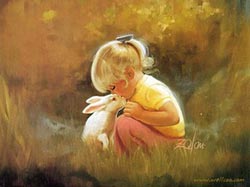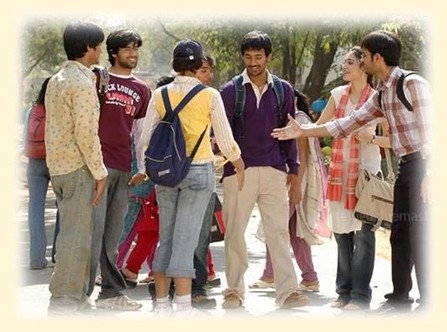Perspective - Welcome to Umamani.com
Main menu
Perspective
Perspectives
Where to begin and how? Here at Coorg, this morning on April 09 sitting at the balcony listening to bird sounds? From my perch I can set a green canopy of trees, encircled by hillocks. Shall I talk to you of lazy afternoons spent at Janki, Kutir, Juhu, Mumbai fifty years ago?
I straddle across half a century, twelve then and sixty-
Let me go back to September 1, 1985:
The same date next year, I would turn forty. What a kaleidoscope of memories, so many patterns emerge, so many windows open: some open easily, some stuck, some translucent crystals, some confused thoughts.
I started the day with migraine, which had bothered me for so many years. Felt upset and helpless. But then I prayed to God, it is His hand I wanted to hold and seek comfort. Dr. Shenai and Peter had spoken to me of Him, and taught me how to meditate, to concentrate.
I felt an inner peace. I started to be with it in pain -
I was abo ut seven when my parents decided to move to a new flat at Matunga, Bombay. They had decided to shift from a three-
ut seven when my parents decided to move to a new flat at Matunga, Bombay. They had decided to shift from a three-
Our life at Andheri had some happy moments too. Meena would come home and play with me. She couldn’t speak Tamil properly. She had a wonderful nanny and a doctor-
My sister was born premature in 1954. She had a medical emergency when she was about two years. Ironically she had a baptism by fire in 1984, when thirty. She never came out of it alive.
I disapproved of quite a few things she did – wearing ‘loud’ sarees, spotting a huge red ‘bindhi’, etc. I stayed away from her. But now I wish I had spent some time with her. Good company, friendly talk could have kept her from straying from the beaten track.
Her death blotted out all ill-

My days in college! What a world of difference between a straight-
It was an evening in mid-
Novelty fascinates. Even the ordinary contains the germ of the infinite. You have to perceive it and sift it out of everyday life. Wordsworth saw splendour in a blade of grass and glory in the flower!
Our trip to Europe and the U.S. was indeed memorable. While the U.S. showed a ‘brave new world’, in Europe culture and modernity co-
In the continent people didn’t converse on English much. It would be a relief to come across someone willing to speak in English. A Parisian grocer enthusiastically responded to me in English when I told him I was from India. He beamed “India..... Indira Gandhi”.
How did I relate to Aparna and Anita? Earlier I had been rather strict with Aparna. Only after she came to std V. did I let loose my hold. Initially she needed a little push. But she bloomed in academics and everything else She was quite cheerful and talkative.
Anita was a gay little bird with a mind of her own. Independent to the point of being stubborn. A voracious reader, I eagerly awaited the day she would post-
Sometimes time hung heavily like a damp towel. I had been looking through the family album — Aparna, Anita’s, our wedding photographs, snaps taken in London. Tokyo and the continent I looked quite beautiful twenty-
What did a woman want in life — education, a caring family, challenging career and social interactions. But beyond the frontiers of knowledge and status was the zone of peace and harmony, lovingly nurtured by a man and woman despite strong personalities.
Started writing again after a year’s gap. Father was no more. I couldn’t accept his death. So harsh, so unreal. I could sell hear him asking for a cup of coffee, back home after a hard day’s work in the office. He had a strong personality. He taught me to tell the truth, even if it hurt, even if it was embarrassing, or put you in a negative light. He taught me to love books, introduced me to the national struggle for freedom, and to respect our country. I came to know of great journalists and the literatti, like Taya Zinkin. S. Sadanand (founder of the Free Press Journal), Natrajan uncle, son of the great social reformer, Kamakshi Natrajan, Stalin Srinivasan of ‘Manikodi’ movement.
He started his career as a journalist in the ‘Bombay Chronicle’ now defunct, for a ‘princely’ salary of Rs. 600 per month. He would often entertain us with stories of the inimitable Sri Sadanand, a hard taskmaster who would often sack and re-
As a journalist father took more than passive interest in the Quit India movement. He spent a few days with Gandhiji at Juhu, Bombay. Later he ventured into printing and publishing and started Sevak Publications. Recognizing the value of research, he published scientific research papers of the University Department of Chemical Technology (U.D.C.T.), Silk and Art Silk Mills Research Association (SASMIRA), and the Bombay Textile Mills Research Association (BTRA). He was fundamentally a journalist, who sought to analyze political and economical issues. His brief comments on the state of the nation was a breath of fresh air in techno-
In 1976, father decided to set up a unit in Madras — Shri Raj Printers — to give employment to some of our employees who couldn’t get domiciliary status in Bombay. I joined the unit, having dabbled in correspondence journalism for a while.
He liked listening to classical/religious cassettes. He had deep respect for Tamil literature. An ardent admirer of Kalki (R Krishnamurthy), he had written a serial ‘Panigrahanam’ in ‘Kalki’ magazine. A tamil novelette (the re-
Later, he became spiritual, an attitude catalyzed by my sister’s untimely death in 1984. He was not orthodox by conventional standards, but was very much aware of the Grace of God till the last breath.
I have stopped mid-
Was there life after death? On the night of August 23, 1986, I felt he came to bid me good-
Till we crossed again at the twilight realm, ‘from whose bourne no traveller returns’, au revoir.
August 1999
These thirteen years have been like Lord Rama’s Vanavasa for me. I feel as if my life is coming full circle, with a few tasks unfinished. I wonder what the Lord felt as he entered the Sarayu to shed his human form. Father’s memory is tucked deep within and it rises occasionally to shed a few tears, if I chance upon any of his letters.
Aparna and Anita have their own homes now, in San Jose and New Delhi respectively. Aparna is expecting her first child and Anita will change her job. My husband and I feel lonely like most NRI parents. At times I feel least inclined to even go for a walk that can let in sunshine into my life.
Coming into Swamy’s (Bhagawan Baba’s) fold has helped me to handle father’s death positively. He had not died young like Sukanya’s husband Badri, who was just 34. Swamy has taught me to discipline my thoughts, my actions and how to love all like as parts of the One Whole. I take Bal Vikas classes and love my Bal Vikas children immensely.
Swamy took my hand and walked me up the spiritual path. I met the Divine Mother (Shakthi) at a crossing. It was a time I was racked by anxiety and anguish about Aparna’s problems in conceiving. I have prayed to both constantly. Aparna has been gifted with a child by her and Sai’s grace.
I worship both Sai and the Mother as sparks of the same divinity.
Now, I am preparing to leave for the U.S. to welcome my daughter’s baby into the new millennium.
May 2003 & later
Hari is three years old. He’s a bundle of joy to his parents and grandparents. When he sings on the telephone: ‘welcome Uma Amma... and welcome Mani thatha........’ I want to drop everything and be with him, I will see him in November 2003. I will be flying to California to be with this impish fellow and his baby brother to be born sometime in July ’03. Trust swamy and the Divine mother to take care of everything.
Anita’s Maitreya is seven months old. He is a happy child with Jabba the Great for company.
Life has come full circle. Less expectations, less desire. I want to travel around the world, and be with my grandkids. Sometime I may write, or walk on the beach at Thiruvanmiyur.
Want to self-
Om Sri Sai Ram
Om Shakthi